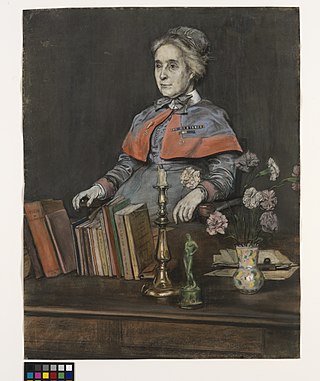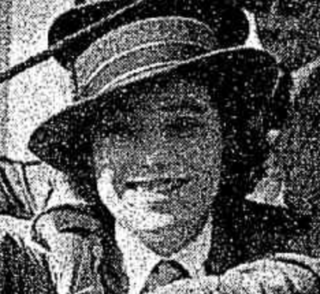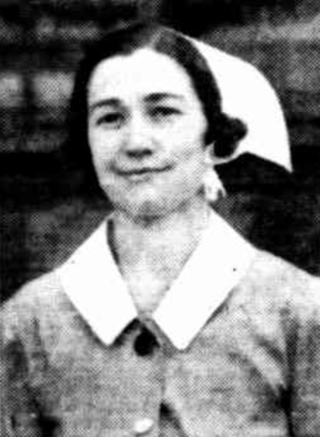Related Research Articles

Florence Nightingale was an English social reformer, statistician and the founder of modern nursing. Nightingale came to prominence while serving as a manager and trainer of nurses during the Crimean War, in which she organised care for wounded soldiers at Constantinople. She significantly reduced death rates by improving hygiene and living standards. Nightingale gave nursing a favourable reputation and became an icon of Victorian culture, especially in the persona of "The Lady with the Lamp" making rounds of wounded soldiers at night.
Nursing in the United Kingdom has a long history. The current form of nursing is often considered as beginning with Florence Nightingale who pioneered modern nursing. Nightingale initiated formal schools of nursing in the United Kingdom in the late 19th and early 20th centuries. The role and perception of nursing has dramatically changed from that of a handmaiden to the doctor to professionals in their own right. There are over 700,000 nurses in the United Kingdom and they work in a variety of settings, such as hospitals, health centres, nursing homes, hospices, communities, and academia, with most working for the National Health Service (NHS). Nurses work across all demographics and requirements of the public: adults, children, mental health, and learning disability. Nurses work in a range of specialties from the broad areas of medicine, surgery, theatres, and investigative sciences such as imaging. Nurses also work in large areas of sub-specialities such as respiratory, diabetes, neurology, infectious diseases, liver, research, cardiac, and stoma. Nurses often work in multi-disciplinary teams but increasingly are found working independently.

Dame Alicia Frances Jane Lloyd Still, DBE, RRC, SRN (1869–1944) was a British nurse, teacher, hospital matron and leader of her profession. She was one of the leaders in the campaign for state registration of nurses. Following the Nurses Registration Act 1919, she was a member of the General Nursing Council (1920-1937). As chairwoman of the General Nursing Council's first Education and Examinations Committee she helped establish the first national examination standards for the registration of nurses.
The word "nurse" originally came from the Latin word "nutrire", meaning to suckle, referring to a wet-nurse; only in the late 16th century did it attain its modern meaning of a person who cares for the infirm.

Dame Sidney Jane Browne, was the first appointed Matron-in-Chief of the newly formed Queen Alexandra's Imperial Military Nursing Service (QAIMNS). After she retired from the QAIMNS she was appointed as Matron-in-Chief of the Territorial Force Nursing Service. Browne was appointed a Dame Grand Cross of the Order of the British Empire in 1919 and, in 1922, she became the first President of the Royal College of Nursing, a post she held until 1925.

The Florence Nightingale Medal is an international award presented to those distinguished in nursing and named after British nurse Florence Nightingale. The medal was established in 1912 by the International Committee of the Red Cross (ICRC), following the Eighth International Conference of Red Cross Societies in London in 1907. It is the highest international distinction a nurse can achieve and is awarded to nurses or nursing aides for "exceptional courage and devotion to the wounded, sick or disabled or to civilian victims of a conflict or disaster" or "exemplary services or a creative and pioneering spirit in the areas of public health or nursing education". The Florence Nightingale Medal Commission comprises several members and staff of the ICRC, several of whom are nursing professionals, and the head nurse of the International Federation of Red Cross and Red Crescent Societies. A representative of the International Council of Nurses also participates in the work of the commission.

Hester Maclean was an Colony of New South Wales-born nurse, hospital matron, nursing administrator, editor and writer who spent most of her career in New Zealand. She served in World War I as the founding Matron-in-Chief of the New Zealand Army Nursing Service, and was one of the first nurses to receive the Florence Nightingale Medal.
The history of nursing in the United Kingdom relates to the development of the profession since the 1850s. The history of nursing itself dates back to ancient history, when the sick were cared for in temples and places of worship. In the early Christian era, nursing in the United Kingdom was undertaken by certain women in the Christian Church, their services being extended to patients in their homes. These women had no real training by today's standards, but experience taught them valuable skills, especially in the use of herbs and folk drugs, and some gained fame as the physicians of their era. Remnants of the religious nature of nurses remains in Britain today, especially with the retention of the job title "Sister" for a senior female nurse.
Beatrice Isabel Jones, was a British nurse who, after serving in several civilian hospitals, volunteered for military service. She served in the Second Boer War in South Africa and then later served during the First World War in Baghdad as matron-in-chief of Mesopotamia. She was one of the inaugural recipients of the Florence Nightingale Medal.

Helen Scott Hay was an American Red Cross nurse and nursing educator, working in Kiev and Sofia during World War I. She was awarded the Florence Nightingale Medal by the International Red Cross Society for her contributions.

Melinda Konover Meirs, known as Linda K. Meirs, was an American Red Cross and Army nurse during World War I. She was one of the first six American recipients of the Florence Nightingale Medal, awarded by the International Committee of the Red Cross in 1920.

Florence Merriam Johnson was an American nurse and nursing administrator in World War I, director of the Department of Nursing for the Atlantic Division of the American Red Cross. She was one of the first six American recipients of the Florence Nightingale Medal, awarded by the International Committee of the Red Cross in 1920.

Edna Nell Doig was an Australian army matron-in-chief.

Joan Stevenson (Judy) Abbott was an Australian World War II army hospital matron.

Rosa Zelma Huppatz, known as Zelma Huppatz, was a South Australian nurse and matron who served in the Middle East and Australia during World War II and then as matron of the Royal Adelaide Hospital.

Dame Ethel Hope Becher was a British nurse who served as the War Office matron-in-chief of the Queen Alexandra's Royal Army Nursing Corps from 1910 to 1919, including World War I.

Carol Margaret Kefford is a British nurse who has served as Clinical Director and Chief Nurse for Nuffield Health and since 2017 is a Colonel Commandant of the Queen Alexandra's Royal Army Nursing Corps (QARANC). She is currently the Chief Nursing Executive for HCA Healthcare UK.

Ethel Jessie Bowe served with the Australian army as matron-in-chief. She was nursing in the UK and Egypt during World War two. She was awarded a Florence Nightingale medal and a Royal Red Cross. She became an honorary Colonel and an honorary nursing sister to Queen Elizabeth II.
References
- ↑ "Exclusive: Top bravery award for Iraq war nurse nicknamed 'Florence of Arabia'". Daily Record . Retrieved 8 March 2017.
- ↑ Farmer, Ben (17 January 2016). "Hero medic: Army cast me aside when trauma was too much". The Daily Telegraph . Retrieved 8 March 2017.
- ↑ "London Gazette Supplement 58776, 24 July 2008, page 11244" . Retrieved 25 February 2018.
- ↑ Edward C Joslin. Observer Book of British Awards and Medals. Page 36. Published Frederick Warne & Co, 1973.
- ↑ Peterkin, Tom. "Major Janet Pilgrim wins the Royal Red Cross first awarded to Florence Nightingale". The Daily Telegraph . Retrieved 6 May 2017.
- ↑ Peterkin, Tom (4 August 2008). "Major Janet Pilgrim wins the Royal Red Cross first awarded to Florence Nightingale". The Daily Telegraph . Retrieved 26 March 2009.
- ↑ "Nursing Major Wins Top Award", Localnewsglasgow.co.uk, October 2008.